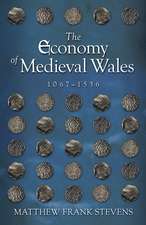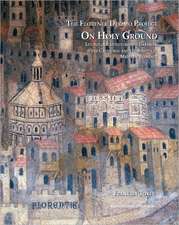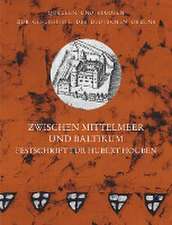Towns on the Edge in Medieval Europe: The Social and Political Order of Peripheral Urban Communities from the Twelfth to Sixteenth Centuries: Proceedings of the British Academy
Editat de Matthew Frank Stevens, Roman Czajaen Limba Engleză Hardback – 10 mar 2022
Din seria Proceedings of the British Academy
- 27%
 Preț: 439.44 lei
Preț: 439.44 lei - 27%
 Preț: 407.48 lei
Preț: 407.48 lei - 27%
 Preț: 469.34 lei
Preț: 469.34 lei - 30%
 Preț: 542.12 lei
Preț: 542.12 lei - 30%
 Preț: 513.24 lei
Preț: 513.24 lei - 27%
 Preț: 469.79 lei
Preț: 469.79 lei - 30%
 Preț: 572.17 lei
Preț: 572.17 lei - 27%
 Preț: 504.81 lei
Preț: 504.81 lei - 30%
 Preț: 544.03 lei
Preț: 544.03 lei - 19%
 Preț: 595.29 lei
Preț: 595.29 lei - 30%
 Preț: 575.55 lei
Preț: 575.55 lei - 30%
 Preț: 512.91 lei
Preț: 512.91 lei - 27%
 Preț: 410.03 lei
Preț: 410.03 lei - 30%
 Preț: 605.79 lei
Preț: 605.79 lei - 18%
 Preț: 322.02 lei
Preț: 322.02 lei - 23%
 Preț: 708.40 lei
Preț: 708.40 lei - 30%
 Preț: 543.54 lei
Preț: 543.54 lei - 28%
 Preț: 474.81 lei
Preț: 474.81 lei - 27%
 Preț: 439.09 lei
Preț: 439.09 lei - 27%
 Preț: 440.88 lei
Preț: 440.88 lei - 30%
 Preț: 669.90 lei
Preț: 669.90 lei - 18%
 Preț: 358.14 lei
Preț: 358.14 lei - 27%
 Preț: 505.46 lei
Preț: 505.46 lei - 30%
 Preț: 579.59 lei
Preț: 579.59 lei - 30%
 Preț: 579.61 lei
Preț: 579.61 lei - 27%
 Preț: 353.12 lei
Preț: 353.12 lei - 27%
 Preț: 443.84 lei
Preț: 443.84 lei - 30%
 Preț: 549.02 lei
Preț: 549.02 lei - 27%
 Preț: 347.97 lei
Preț: 347.97 lei - 29%
 Preț: 676.05 lei
Preț: 676.05 lei - 27%
 Preț: 506.02 lei
Preț: 506.02 lei - 30%
 Preț: 515.70 lei
Preț: 515.70 lei - 27%
 Preț: 473.43 lei
Preț: 473.43 lei - 29%
 Preț: 519.42 lei
Preț: 519.42 lei - 27%
 Preț: 441.48 lei
Preț: 441.48 lei - 27%
 Preț: 411.02 lei
Preț: 411.02 lei - 30%
 Preț: 605.86 lei
Preț: 605.86 lei - 30%
 Preț: 518.05 lei
Preț: 518.05 lei - 27%
 Preț: 378.43 lei
Preț: 378.43 lei - 27%
 Preț: 442.86 lei
Preț: 442.86 lei - 30%
 Preț: 546.71 lei
Preț: 546.71 lei -
 Preț: 378.56 lei
Preț: 378.56 lei - 27%
 Preț: 379.58 lei
Preț: 379.58 lei - 27%
 Preț: 441.72 lei
Preț: 441.72 lei - 27%
 Preț: 441.89 lei
Preț: 441.89 lei - 27%
 Preț: 442.08 lei
Preț: 442.08 lei - 18%
 Preț: 357.22 lei
Preț: 357.22 lei - 27%
 Preț: 407.16 lei
Preț: 407.16 lei - 27%
 Preț: 440.88 lei
Preț: 440.88 lei - 27%
 Preț: 472.12 lei
Preț: 472.12 lei
Preț: 438.99 lei
Preț vechi: 604.88 lei
-27% Nou
Puncte Express: 658
Preț estimativ în valută:
84.01€ • 87.21$ • 70.05£
84.01€ • 87.21$ • 70.05£
Carte tipărită la comandă
Livrare economică 13-19 martie
Preluare comenzi: 021 569.72.76
Specificații
ISBN-13: 9780197267301
ISBN-10: 0197267300
Pagini: 288
Ilustrații: 15
Dimensiuni: 161 x 240 x 23 mm
Greutate: 0.58 kg
Editura: OUP OXFORD
Colecția OUP Oxford
Seria Proceedings of the British Academy
Locul publicării:Oxford, United Kingdom
ISBN-10: 0197267300
Pagini: 288
Ilustrații: 15
Dimensiuni: 161 x 240 x 23 mm
Greutate: 0.58 kg
Editura: OUP OXFORD
Colecția OUP Oxford
Seria Proceedings of the British Academy
Locul publicării:Oxford, United Kingdom
Notă biografică
Matthew Frank Stevens studied at Pennsylvania State University and the University of Wales, Aberystwyth, completing his PhD in medieval social and economic history in 2005. He is now an Associate Professor of history at Swansea University. He has been an Ulam fellow of the Polish National Agency for Academic Exchange, at Nicolaus Copernicus University, Toru?, an Eileen Power fellow of the Economic History Society, at Oxford University, and a research officer at the Institute of Historical Research, University of London. He is the author of numerous academic articles and two monographs: Urban Assimilation in Post-Conquest Wales: Ethnicity, Gender and Economy in Ruthin, 1282-1348 (2010) and The Economy of Wales, 1067-1536 (2019).Roman Czaja studied history at the Institute of History and Archives Sciences of Nicolaus Copernicus University, Toru?, completing his PhD. in the Department of Arts in 1991. He is now a Professor of history at NCU, holding the Chair of Medieval History and Auxiliary Sciences of History. A fellow of the Alexander von Humboldt Foundation at Humboldt Universität and Freie Universität in Berlin, in 2018 he was honoured by the University of Debrecen with the degree of Doctor Honoris Causa. He is author of over 250 research articles and of five books. In 2008 he published Grupy rz?dz?ce w miastach nadba?tyckich w ?redniowieczu (Ruling Groups in the Cities of the Baltic Zone in the Middle Ages) with Nicolaus Copernicus University Press.
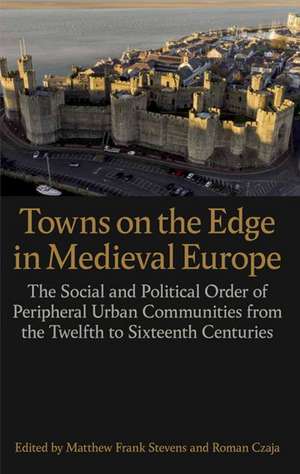
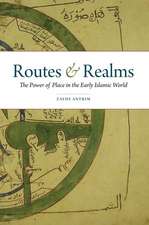
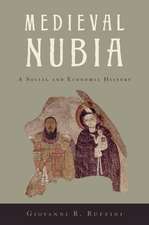



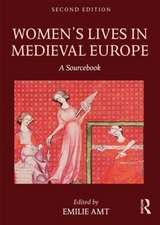
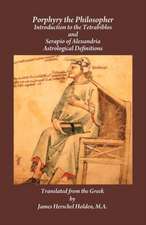
![Viking Age Amulets in Scandanavia and Western Europe: Site Catalogue [With CDROM]](https://i3.books-express.ro/bt/9781407307138/viking-age-amulets-in-scandanavia-and-western-europe.jpg)


